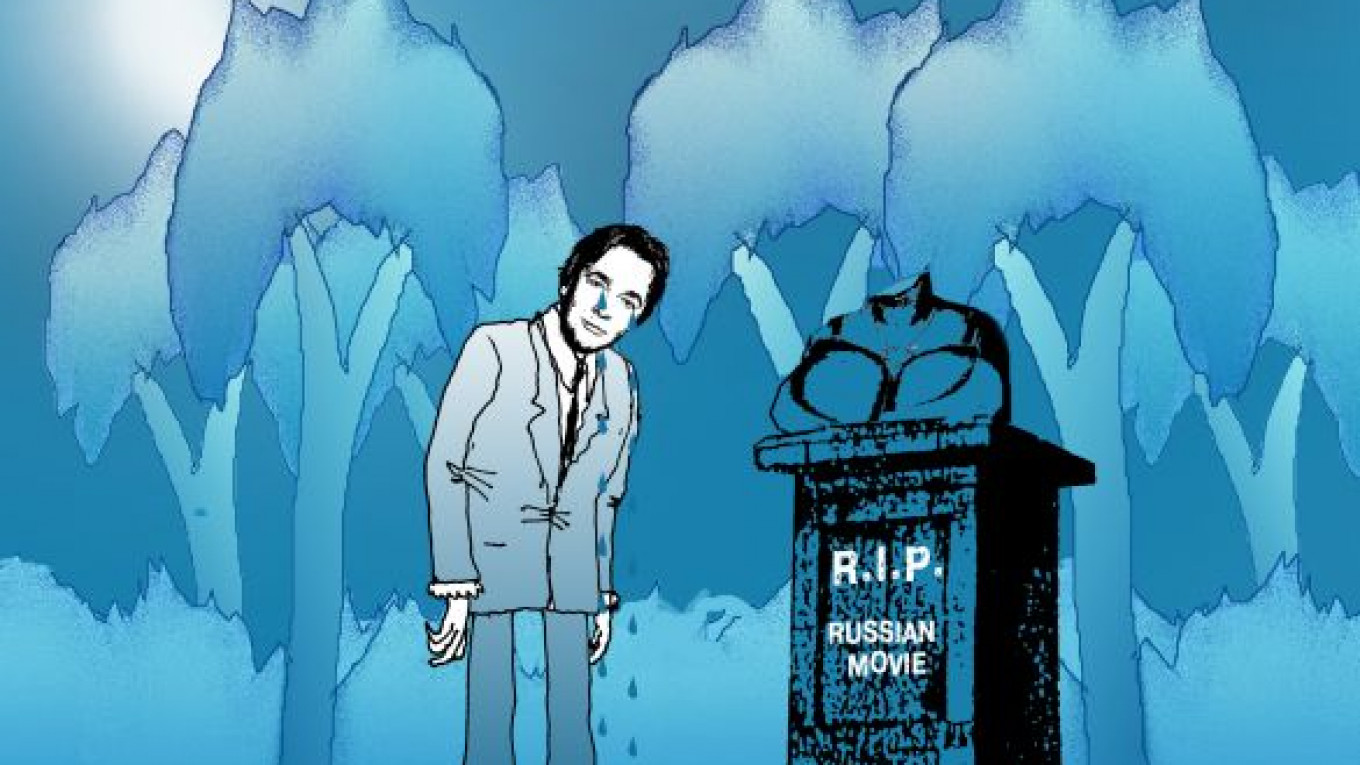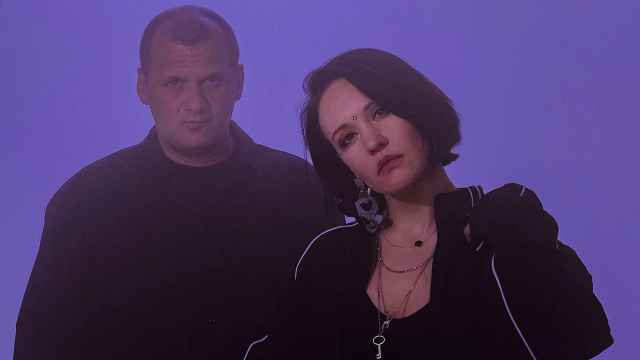This week, Channel One controller Konstantin Ernst took a dig at the luxuriant breasts of retired ice dancer Anna Semenovich, saying they were doubly responsible for the death of Russian cinema. And a little bit of a fairy tale died, as Russian-born model Natalia Vodianova revealed that she has separated from her husband, British aristocrat Justin Portman, whom she had married in a perfect market stall-to-mansion story.
Lank-haired Ernst was the man behind "Irony of Fate 2," a remake of the Soviet New Year's comedy with added product placement so blatant that one character even worked for Beeline. So he had plenty of chutzpah when he gave a lecture at the Moscow International Film Festival on why young people do not want to see Russian films any more.
He blamed "The Balls of Fate," a movie-length adaptation of a television sketch about hapless gastarbeiter workers in Moscow. Oh, and Semenovich, whose famous bosom stole the scene in "Hitler Kaput," a parody of Soviet war movies. Oddly enough, both were huge hits. I rather enjoyed "The Balls of Fate," which had a slightly subversive message about the orange-clad gastarbeiters rising up at the end, with nothing to lose but their orange jackets and brooms. Although I have to admit giving "Hitler Kaput" a miss.
"The guys with 'The Balls of Fate' and the mammary glands of Anna Semenovich have so turned off the most active youth audience from Russian cinema that they won't go to see a Russian film any more, not even a good one that is worth watching," Ernst intoned in a lecture quoted in Komsomolskaya Pravda.
What audiences can't stand is being deceived, he bewailed, although that has never stopped Channel One from airing promotion for its films as items on its nightly news show.
The story was lavishly illustrated with a large photograph of the said breasts. Oh, and a still from the film, showing Semenovich vamping with a pistol and very tight dress, like an earlier version of Anna Chapman.
Semenovich, who used to be an ice dancer, has had a brilliantly varied career, moving on to be a member of girl group Blestyashchiye to sitcom actress and television host, even if she is condemned to be remembered primarily for her breasts, which have grown noticeably larger since her skating days and prompted snide speculation about silicon. But maybe she just needs an inspired film director to make her frolic in the fountain with the horses on Manezh Square, "Dolce Vita" style.
Meanwhile, Vodianova announced in the ES magazine — the glossy published by the London newspaper Evening Standard — that she had separated from her husband of nine years and was in love with someone else, after rumors had swirled around for more than a year. Vodianova grew up in grimy Nizhny Novgorod, a city always described in Dickensian terms in magazine profiles — and sounds to have been really poor, even working at a market stall at one point. But with those legs and sparkly eyes, she was obviously not going to stay weighing out fruit, and she got her big break as a model, moved abroad and the rest is Hello! magazine. She married Portman, an aristocrat and half-brother of a super-wealthy property tycoon, whose own profession is sometimes described vaguely as an artist, and they had three children in quick succession, while she was still in her 20s.
Rumors of a separation surfaced last year, when Russian media named a possible new man in Vodianova's life as a Channel One director, Andrei Boltenko.
Recently "Russia's Cinderella," as Komsomolskaya Pravda gushingly calls her, has been seen with a prominent Russian divorce lawyer, it said Thursday.
A Message from The Moscow Times:
Dear readers,
We are facing unprecedented challenges. Russia's Prosecutor General's Office has designated The Moscow Times as an "undesirable" organization, criminalizing our work and putting our staff at risk of prosecution. This follows our earlier unjust labeling as a "foreign agent."
These actions are direct attempts to silence independent journalism in Russia. The authorities claim our work "discredits the decisions of the Russian leadership." We see things differently: we strive to provide accurate, unbiased reporting on Russia.
We, the journalists of The Moscow Times, refuse to be silenced. But to continue our work, we need your help.
Your support, no matter how small, makes a world of difference. If you can, please support us monthly starting from just $2. It's quick to set up, and every contribution makes a significant impact.
By supporting The Moscow Times, you're defending open, independent journalism in the face of repression. Thank you for standing with us.
Remind me later.






